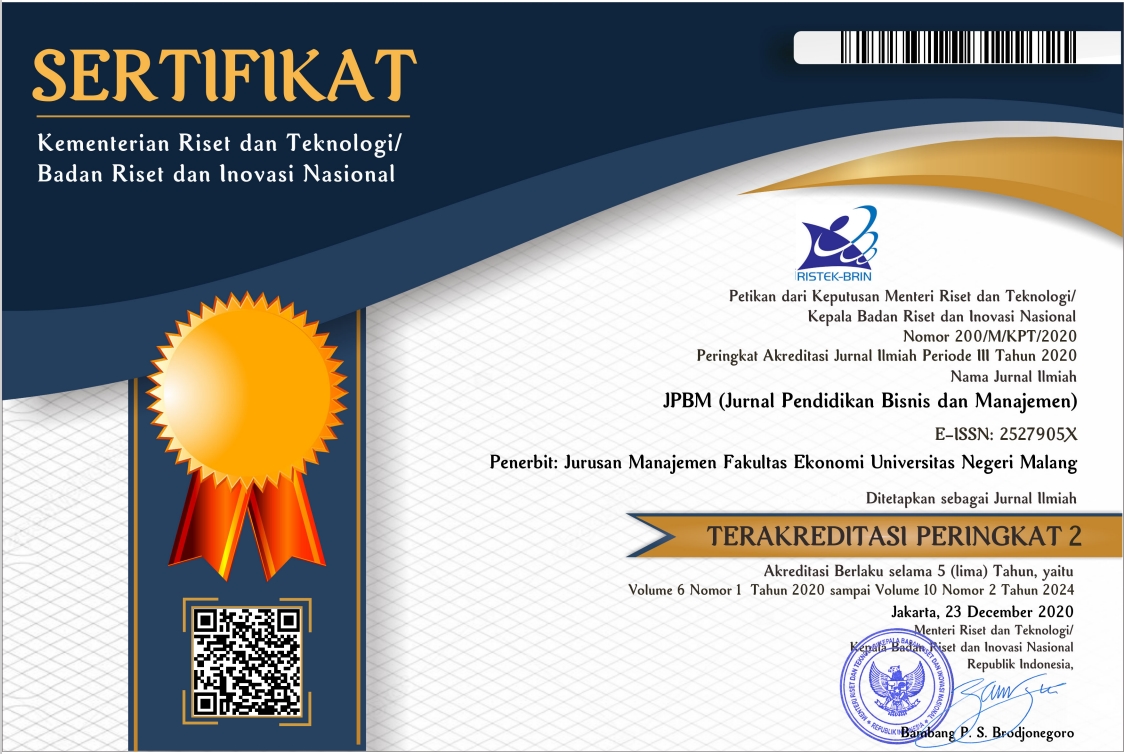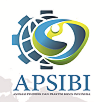The Role of Kiai In Establishing The Accountability of The Nahdlatul Ulama
Abstract
Keywords
Full Text:
PDFReferences
Attouni, M.A.K., Mustaffa, C.S. 2014. How do Non-profit Organizations in Libya Adopt and Use Social Media to Communicate with The Society. Procedia - Social and Behavioral Sciences, The International Conference on Communication and Media 2014 (i-COME’14) - Communication, Empowerment and Governance: The 21st Century Enigma 155, 92–97. https://doi.org/10.1016/j.sbspro.2014.10.262
Awio, G., Northcott, D & Lawrence, S. 2011. Social Capital and Accountability in Grass Roots NGOs: The Case of The Ugandan Community-Led HIV/AIDS Initiative. Accounting, Auditing & Accountability Journal, 24(1), 63-92. http://doi.org/10.1108/09513571111098063
Berry, A. J. 2005. Accountability and Control in a Cat’s Cradle. Accounting Auditing & Accountability Journal, 18(2), 255-297, http://doi.org/10.1108/09513570510588781
Creswell, J. . 2007. Qualitative Inquiry & Research Design: Choosing Among
Five Approaches, 2nd ed. California: Sage Publication.
Jacobs, K. 2005. The Sacred and The Secular: Examining The Role of Accounting in The Regilious Context. Accounting, Auditing & Accountability Journal, 18(2), 189-210, http://doi.org/10.1108/09513570510588724.
Jayasinghe, K., & Soobaroyen T. 2009. Religious “spirit” and peoples perceptions of accountability in Hindu and Buddhist religious organizations. Acounting, Auditing & Accountability Journal, 22(7), 997-1028. http://doi.org/10.1108/095
Macedo, I.M., Pinho, J.C., Silva, A.M., 2016. Revisiting the link between mission statements and organizational performance in the non-profit sector: The mediating effect of organizational commitment. European Management Journal 34, 36–46. https://doi.org/10.1016/j.emj.2015.10.003
Kovach, H., Neligan, C., & Burali, S. 2003. Power Without Accountability The Global Accountability Report 1, One World Trust, London, pdf download available at: www.oneworldtrust.org/htmlGAP/report Mardiyah. 2012. Kepemimpinan Kiai dalam Memelihara Budaya Organisasi di Pondok Modern Gontor, Lirboyo Kediri, dan Pesantren Tebuireng Jombang. Jurnal TSAQAFAH, 8 (1).
Mujayanti, M. 2015. Akuntabilitas Pengelolaan Keuangan Dana Bansos Pada Majelis Ta’lim Muslimat Nu Ukhuwah Islamiyah Kampung Anyar, Singaraja, Bali. e-Journal S1 Ak. Universitas Pendidikan Ganesha Jurusan Akuntansi Program S1, 3 (1).
Miles, M.B., Huberman, A.M., & Saldana, J. 2014. Qualitative Data Analysis: A Methods Sourcebook. Sage, London.
Moleong, L.J. 2007. Metodologi Penelitian Kualitatif. Bandung: PT. Remaja Rosdakarya Offset
Nandya, A. 2013. Akuntabilitas Pemerintah Provinsi Jawa Timur dalam Pengelolaan Aset. Jurnal Kebijakan dan Manajemen Publik, 1(1).
Roughton, J., Crutchfield, N., Waite, M.. 2019. Chapter 2 - Analyzing the Organizational Culture, in: Roughton, J., Crutchfield, N., Waite, M. (Eds.), Safety Culture (Second Edition). Butterworth-Heinemann, pp. 35–52. https://doi.org/10.1016/B978-0-12-814663-7.00002-9
Warrick, D.D. 2017. What leaders need to know about organizational culture. Business Horizons 60, 395–404. https://doi.org/10.1016/j.bushor.2017.01.011
DOI: http://dx.doi.org/10.17977/um003v4i22018p084
Refbacks
- There are currently no refbacks.
JPBM (Jurnal Pendidikan dan Bisnis Manajemen) is licensed under a Creative Commons Attribution-NonCommercial-ShareAlike 4.0 International License.
JPBM (Jurnal Pendidikan dan Bisnis Manajemen) is abstracted and indexed in :
















